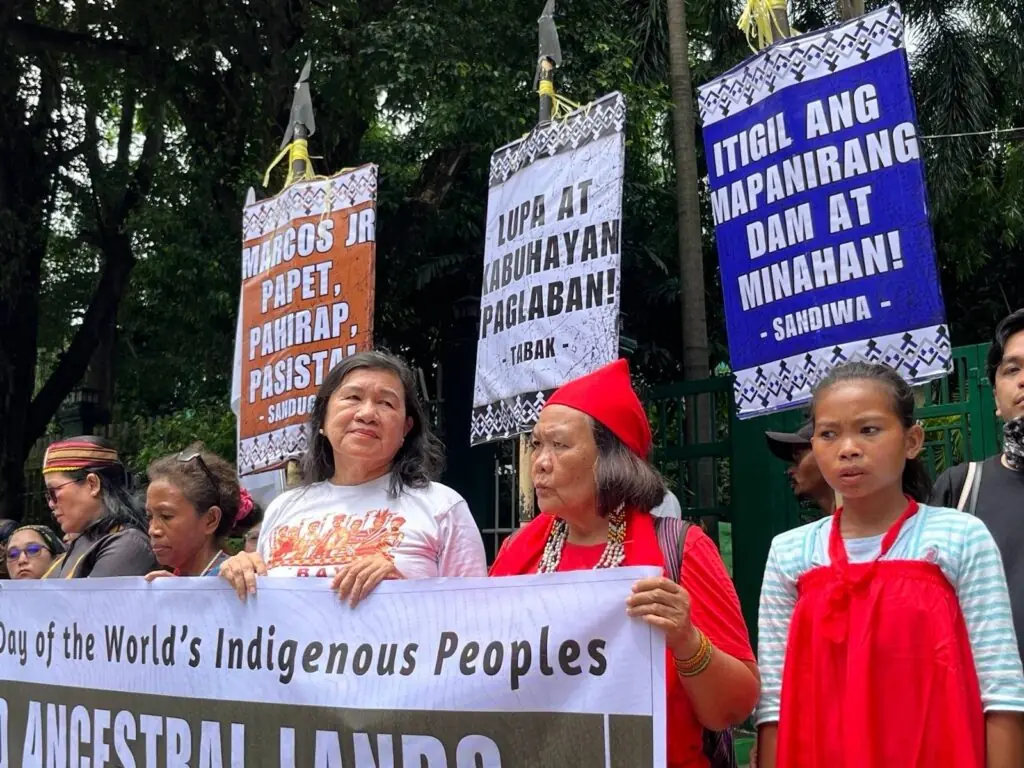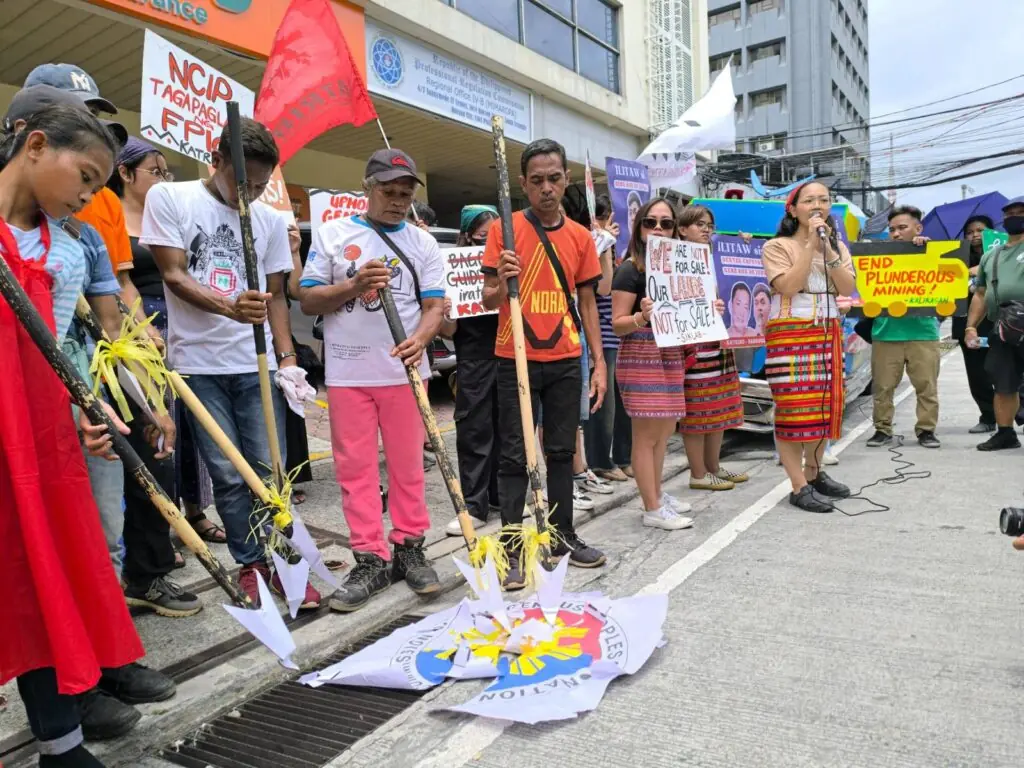Katribu Kalipunan ng Katutubong Mamamayan ng Pilipinas joined Indigenous Communities worldwide in celebrating the International Day of the World’s Indigenous Peoples (IDWIP) this August 9th, through a series of protests across different government institutions under Ferdinand “Bongbong” Marcos Jr. administration.
Katribu, along with various IP rights groups and defenders, first trooped to the Department of National Defense at Camp Aguinaldo to condemn the intensified attacks by the state, including militarization and rampant aerial bombings in IP lands and territories.
Speakers shed light on the effects of military presence and bombings in IP communities, such as surveillance, harassment, and ultimately, death. The most recent bombing happened in Balbalan, Kalinga on June 7 where the destructive Saltan dams are proposed to be built, which would displace and submerge six Indigenous Peoples communities. “These military operations, aside from its counterinsurgency efforts, are in fact also designed to clear the way for destructive projects that devastate our communities and environments,” said Beverly Longid, National Convener of Katribu.

The groups then protested at the Department of Environment and Natural Resources (DENR) to denounce the ongoing plunder of ancestral lands and territories that the department allows, initiates, and is complicit in. Advocates joined them in revealing the situation on the ground. Extractive projects such as large-scale mines and dam projects destroy the environment and displace the people.
Presently, Katribu have documented 14 foreign-owned and -funded companies that encroach on ancestral lands. These include extractives such as the Didipio Gold and Copper Mine in Nueva Vizcaya, the Ipilan Nickel Corporation in Palawan, and Tampakan Mining in South Cotabato. While energy projects include the Solar UV Farm in Ilocos Norte, Gened and Saltan Dams in the Cordillera, Kaliwa Dam in Rizal and Quezon Provinces, Jalaur Dam in Iloilo, and the South Pulangi Hydroelectric Power Plant in Bukidnon.
In his recently concluded State of the Nation Address, Bongbong Marcos welcomed these developments for climate mitigation, however it only exacerbates environmental degradation leading to disasters.

The IP groups lastly headed to the National Commission on Indigenous Peoples (NCIP) to demand accountability for its consistent neglect of Indigenous communities. Speakers condemned the NCIP for its failure to aid in human rights violations against IP rights defenders, such as the enforced disappearances of Dexter Capuyan and Bazoo de Jesus and the unjust conviction of the Talaingod 13. “The NCIP, far from protecting IP rights, is a tool of state oppression in violating Indigenous rights,” said Longid. “Such as in the case of proposing FPIC revisions without consulting their constituents, the NCIP only aids corporate plunder.”
The NCIP recently proposed revisions for the FPIC processes, which include the exacerbation of civil and political rights abuses through the exclusion of military activities from the FPIC process, giving a time limit for the communities to give their consent, and restricting access to relevant environmental information. In the recently-concluded academic forum with the UN Special Rapporteur on the Rights of Indigenous Peoples Francisco Cali Tzay last July 24 to 25, IP groups in the Philippines shared their grievances regarding the government’s neglect and attacks on them and their communities.
The groups also condemned the NCIP’s connection with the NTF-ELCAC, as seen of their former figureheads Allen Capuyan and Marlon Bosantog who notoriously vilified their constituents. They called for the abolition of both the commission and the task force and called on the new NCIP chair Jennifer Sibug-Las to not be another Capuyan.
On IDWIP, Katribu along with other IP rights organizations, called to stop the attacks on Indigenous Peoples, their communities, and their defenders. They called for the immediate repeal of the Anti-Terrorism Law (ATL) and the release of all political prisoners. “The celebration of IDWIP must always revolve around the defense of our ancestral lands and the assertion of our right to self-determination,” concluded Longid
